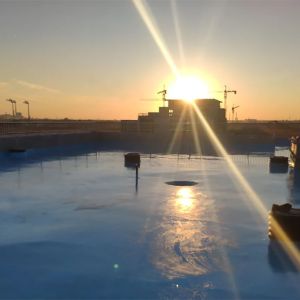| Sign In | Join Free | My himfr.com |
|
| Sign In | Join Free | My himfr.com |
|
| Ask Lasest Price | |
| Brand Name : | Zhuhai Feiyang |
| Model Number : | Is Thicker Waterproofing Always Better? |
| Certification : | ISO 14001-2004, ISO 19001-2000 |
| Payment Terms : | L/C, T/T |
| Supply Ability : | More than 20000 tons per year |
| Delivery Time : | 7 days after orders comfirmed |
Many harbor this notion during home renovations: "Thicker waterproofing must equate to better protection." But is that really the case?

The Myth of Thickness
No, thicker isn't necessarily better. For one, waterproofing should be applied in multiple thin layers, not too thickly, to avoid cracking or peeling—similar to applying makeup. Moreover, like cosmetics, waterproofing materials aren't cheap. Over-application is not only time-consuming and labor-intensive, but also wasteful. However, too thin a layer won’t be effective and can age and fail prematurely.
The Optimal Thickness
So, what's the right thickness? Taking Polyaspartic Polyurea as an example for non-destructive waterproofing:
Different products have different requirements, understanding them before commencing work is crucial. Remember, actual usage depends on various factors such as construction technique, surface smoothness, environmental temperature, and product consistency.
Effective Waterproofing Application

During application, avoid trying to achieve the required thickness in one go. Instead, apply multiple thin coats, crisscrossing each layer to prevent missed spots and bubbling.
A Special Note: Before the waterproofing layer has set, avoid walking on it to prevent damage. Protect entrances, walls, and other areas during the process to avoid contamination of the finished surfaces.
In conclusion, different waterproofing materials require different thicknesses depending on the application. Don't fall into the trap of thinking thicker is always better—it could lead to wasted expenses and ineffective results. Hopefully, this insight has been helpful.
Polyaspartic Polyurea's advantages extend beyond waterproofing to anti-corrosion and flooring projects, offering superior performance in diverse applications.
Feiyang has been specializing in the production of raw materials for polyaspartic coatings for 30 years and can provide polyaspartic resins, hardeners and coating formulations. Some of our polyaspartic coating formulations: Polyaspartic Coating
Feel free to contact us: marketing@feiyang.com.cn
Our products list:
Learn more polyaspartic knowledge: Polyaspartic FAQ

|




